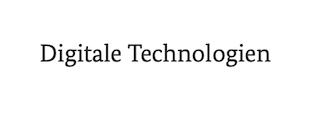ARKIDES
Automated disassembly and separation of electrical engineering components with AI-assisted, self-learning disassembly and pre-sorting
In an era where global pressure to adopt sustainable solutions is growing exponentially and resource scarcity is becoming increasingly acute, the concept of the circular economy is gaining prominence as a form of sustainable economic management. This concept has now captured the public’s attention, particularly in industrial settings. Traditional, linear production methods, which are based on extracting raw materials, processing them into end products and disposing of them after use, are increasingly reaching their limits in terms of long-term sustainability and environmental compatibility.
In contrast, the circular economy offers a model that not only promises more efficient use of resources but also has the potential to significantly reduce negative environmental impacts. This approach additionally offers a more long-term, sustainable outlook for the industry, aiming to align economic activities with environmental and social objectives.
Bearing this in mind, the ARKIDES project’s stated objective is to develop a new automated process for dismantling large-scale electrical appliances and equipment. Mangelberger Elektrotechnik GmbH, the initiator of the ARKIDES project, considers ensuring sustainability and recycling its products to be essential contributions to realising its vision of becoming a carbon-neutral company.
At the heart of this innovative project lies the implementation of a highly specialised robot assembly line that operates on the basis of two distinct functional stations. This technology enables efficient and precise dismantling of complex switchgear and large-scale electrical equipment using collaborative robots, commonly referred to as “cobots”. Following the disassembly procedure, the extracted parts and assemblies undergo a sensor-controlled recognition process. The materials are then automatically pre-sorted. This highly automated process effectively identifies valuable raw materials and recycles them for reuse in both old and new systems.
The self-learning system at the heart of this project also offers the option of extending automated disassembly to a wide range of other electrical appliances and devices, including televisions, refrigerators, washing machines and computers. This extended applicability offers the potential for a significantly higher reuse rate for components and materials. The dismantling process itself is complex and divided into several substantial steps, including state-of-the-art 3D scanning technologies for a precise analysis of the device structure as well as specialised processes for loosening connections between the various components.
The ARKIDES project has set itself the ambitious goal of developing ground-breaking solutions in the recycling industry, specifically by enhancing the reuse rates for a variety of materials and products. Integrating automation solutions into existing and future recycling strategies plays a key role in this context. One particularly innovative aspect of the project is the first-time application of visually supported disassembly technology in a flexible and self-learning design. This innovative approach facilitates more adaptive, efficient, and precise disassembly, sorting out reusable components more effectively. This not only positions the project uniquely within the evolving recycling and reuse landscape but also establishes it as a pioneer in the application of advanced, automated technologies in the circular economy.
Consortium:
- Mangelberger Elektrotechnik GmbH
- FAPS Nuremberg
- Breit Formenbau KG
- E. Braun GmbH
- Recommend this page:
- Print view
